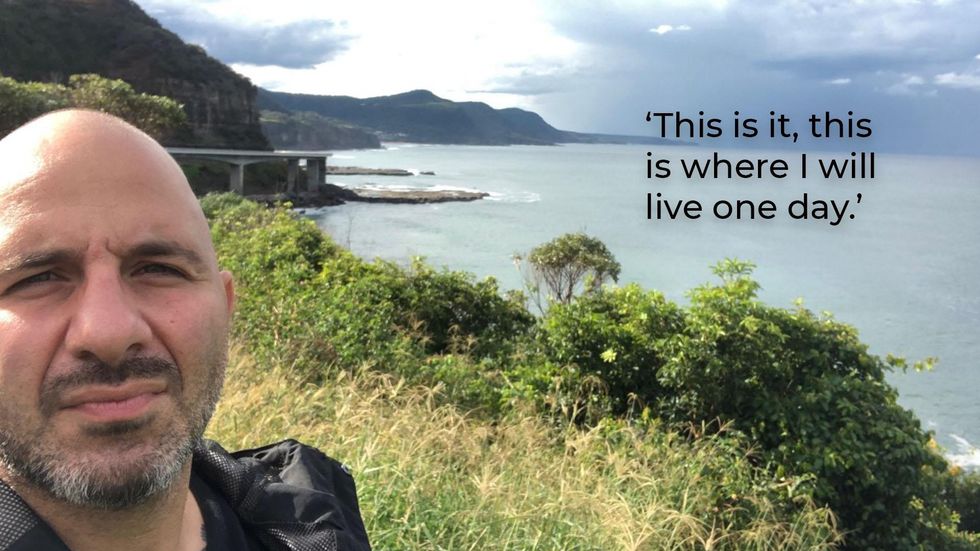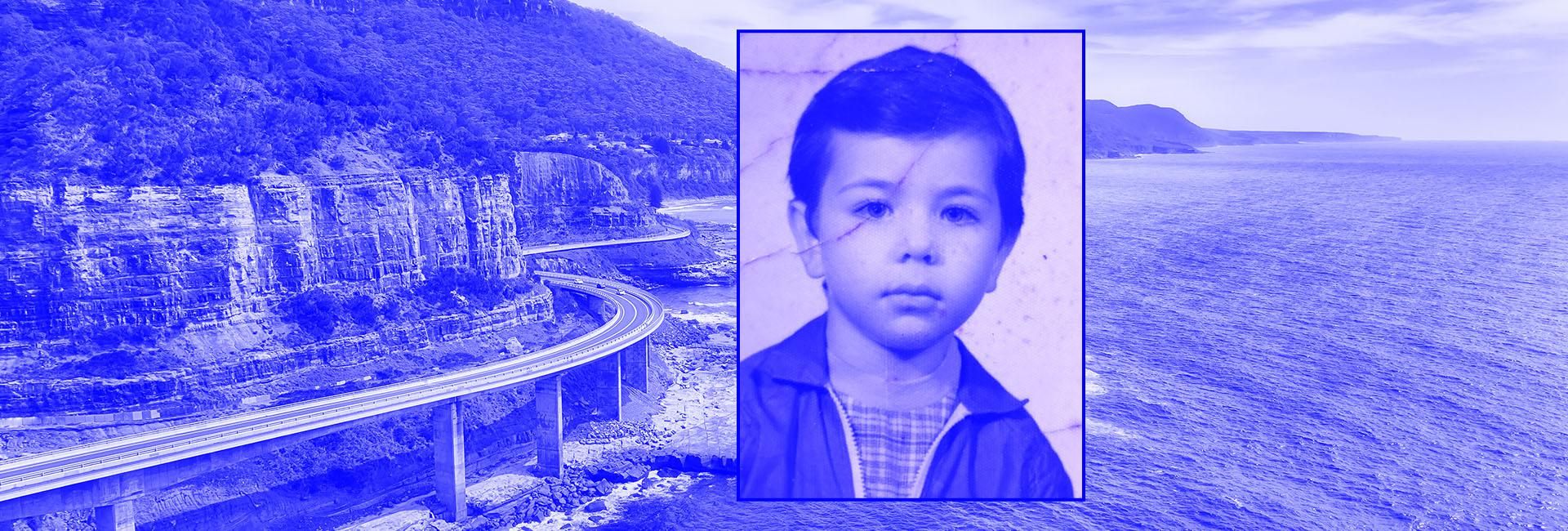Kaveh Akbari came to Australia as a refugee from Iran at 13. On World Refugee Day, he reflects on why, after 22 years, he is only ever 'Australian by opinion'.
I've recently moved to the Illawarra. It's breathtaking here. I live at the bottom of an escarpment in a coastal village called Scarborough where a rocky valley meets the sea. It is beautifully wild and perfectly serene. After 15 years of dreaming, I finally made it. It's the first time since arriving in Australia at 13 years of age that I comfortably call a place home. Prior to this, I didn't quite belong.
The geography here stands out. There is only so much habitable land between the mountain and the ocean so the towns can't just expand. To the west, you're enclosed by the cliff-faces, to the east the land is hugged tightly by the sea. The contrast is beautiful. Living immediately amid the juxtaposition, depicts exactly what my Australia is, a constant contrast.
Migration has always been part and parcel of life in the Illawarra post settlement. The coal mines and the steel factories have attracted various populations since the 1940s. Unlike Sydney however, the luxury of land is not afforded for people to create ethnic siloes so they have mixed across cultures. This has impacted the ethos of this region. It has genuinely normalised diversity. Anyone with a background feels it - the Illawarra is much less racist.

I remember the first time I laid eyes on the place. It was January 2006. I was dragged to a party by an ex-girlfriend. She insisted we go despite my hesitation with driving through The Shire since the Cronulla riots a month earlier.
She wanted to drive over some new bridge. I'll never forget the journey; the road got narrower and the bush denser then suddenly we were atop a huge escarpment - it was immensely beautiful. I felt a lump in my throat. It looked so much like my place of upbringing, northern Iran where the lush forests of the mountains follow the road to the Caspian sea.
I was wide-eyed looking down, following a winding road through the bush as it wrapped itself around cliff faces then reached a bridge. The Sea Cliff Bridge.
"That's it, that's the bridge … let's go," she said.
'I am Australian only by opinion… depends on who you ask! For some, I'll never be Australian, for others, not quite there yet! I occupy a place in between.'
"This is it; this is where I will live one day," I said to her that day. As we drove down, I wondered in silence whether it could ever happen. Could a refugee kid with next to nothing live in this paradise. Immediately my mind regurgitated the events of the past; the Cronulla riots and its aftermath, 9/11 and its aftermath. I recollected every episode of life in Australia where someone, or something reiterated that I didn't belong. I felt a deep anxiety setting in, antagonising the excitement of the find. The bad, always come with the good.
This, never-really-belonging is a constant part of my reality. My Australian identity was formed in a vacuum. To survive, I had to mould accordingly. Even after 22 years as a citizen, I am Australian only by opinion… depends on who you ask! for some, I'll never be Australian, for others, not quite there yet! And for a few concerned with niceties, I may be called Australian on days they feel generous. I occupy a place in between.
I'm reminded of this routinely, sometimes directly, explicitly and other times it's implied, vicarious.
I have to consciously remove the cues of not-belonging just to remember those other times when I did in fact belong. The times where I was Australian enough. I need these reminders to keep me going. Overseas, I'm Australian – I love that. I'm Australian, like the butterflies that giggle in my gut as I descend on Kingsford-Smith airport and think, Ah! I'm home.
I've met my first love here, I've lost my virginity here, I've had my first fist fight here. My best mates are here. I am Australian like Todd from dusty Bordertown who never asked: "Where are you from?" I'm Australian like the Tasman Sea that touches my body every morning. Like the track that leads me onto the beach. This is my home.
I'm Australian like the old white Cab driver who picked me up a few weeks after the riots and sobbed and apologised for "what you have gone through, just watching those racist bastards", telling me "you belong here just as much as anyone else" because "unless you're a black fella, we're all immigrants in this country". I'll never forget that good man.
They still come in many forms, the insults, but I notice them less. With age, you learn to ignore ignorance. They still come however, in the form of representatives: the Pauline Hansons and Peter Duttons. Like Trump's Muslim ban because my passport reads, place of birth: Iran. And just like that, I was a rendered second-class for a while. They come in the form of banter, of micro-aggressions, passive closet racism like local tradesmen entering my house and saying "nice place … how did you end up here"?
What we learn is to take the good with the bad, to woefully accept the bad. It's bestowed upon us and this sad fact always weighs heavy on my heart. The bad is a continuous obstacle, constantly denying us the true comfort of complete belonging.
On the 11th of December, 2005, my old work colleague "fired up the barbie" for the Cronulla rioters. He came in on the Monday boasting about it. A few weeks later, he invited me to his birthday in the Shire thinking I wouldn't go, But I went just to prove a point. It was on this night the old cab driver picked me up.
A few months ago, whilst walking my dog across the bridge, I took out my phone and googled its inauguration date. I had to stop and do a double take! December 11, 2005.
This is my Australia. We learn to take the bad … with the good






Afraid of an egg: the tyranny of living with social media's body standards